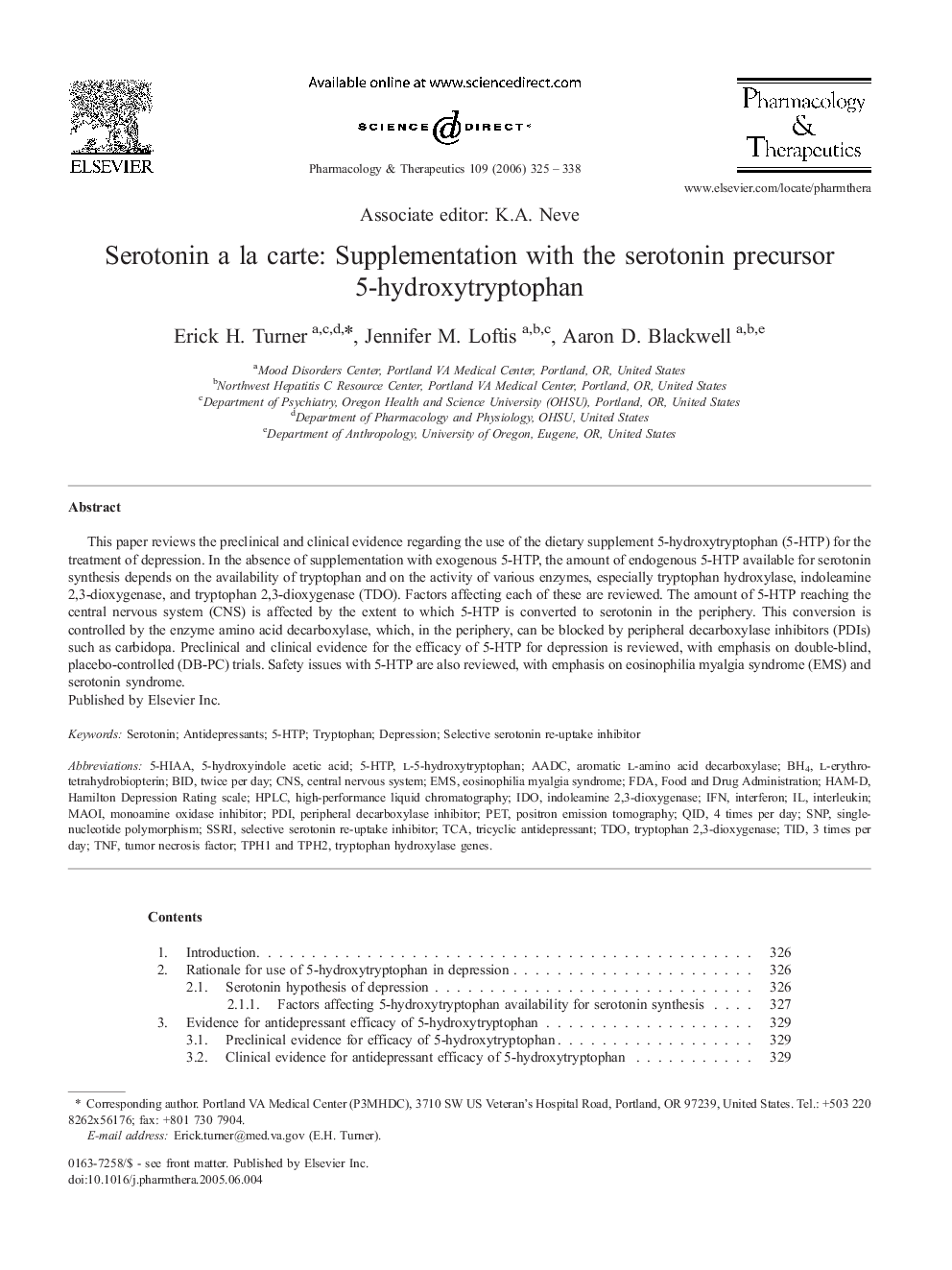| Article ID | Journal | Published Year | Pages | File Type |
|---|---|---|---|---|
| 2563876 | Pharmacology & Therapeutics | 2006 | 14 Pages |
This paper reviews the preclinical and clinical evidence regarding the use of the dietary supplement 5-hydroxytryptophan (5-HTP) for the treatment of depression. In the absence of supplementation with exogenous 5-HTP, the amount of endogenous 5-HTP available for serotonin synthesis depends on the availability of tryptophan and on the activity of various enzymes, especially tryptophan hydroxylase, indoleamine 2,3-dioxygenase, and tryptophan 2,3-dioxygenase (TDO). Factors affecting each of these are reviewed. The amount of 5-HTP reaching the central nervous system (CNS) is affected by the extent to which 5-HTP is converted to serotonin in the periphery. This conversion is controlled by the enzyme amino acid decarboxylase, which, in the periphery, can be blocked by peripheral decarboxylase inhibitors (PDIs) such as carbidopa. Preclinical and clinical evidence for the efficacy of 5-HTP for depression is reviewed, with emphasis on double-blind, placebo-controlled (DB-PC) trials. Safety issues with 5-HTP are also reviewed, with emphasis on eosinophilia myalgia syndrome (EMS) and serotonin syndrome.
